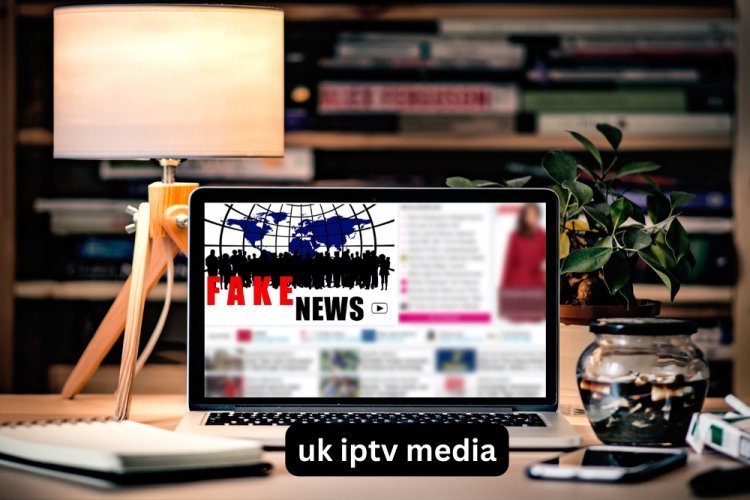Comprehensive Guide to UK IPTV Media: Everything You Need to Know
The rise of IPTV (Internet Protocol Television) has revolutionized the way people consume media globally, and the UK is no exception. IPTV allows users to access a wide range of television content over the internet, bypassing traditional broadcast methods such as cable and satellite. This guide explores the essentials of UK IPTV media, its benefits, popular providers, legal considerations, and more.

The rise of IPTV (Internet Protocol Television) has revolutionized the way people consume media globally, and the UK is no exception. IPTV allows users to access a wide range of television content over the internet, bypassing traditional broadcast methods such as cable and satellite. This guide explores the essentials of UK IPTV media, its benefits, popular providers, legal considerations, and more.
Table of Contents
- Introduction to IPTV
- How IPTV Works
- Types of IPTV Services
- Advantages of IPTV
- Popular IPTV Providers in the UK
- Devices Compatible with UK IPTV
- Legal Aspects of IPTV in the UK
- Challenges and Limitations of IPTV
- How to Choose the Right IPTV Service
- Future of IPTV in the UK
- Conclusion
1. Introduction to IPTV
IPTV (Internet Protocol Television) refers to the delivery of television content over the internet instead of through traditional terrestrial, satellite, or cable formats. It allows users to stream live TV, on-demand shows, and other multimedia content via broadband connections.
2. How IPTV Works
IPTV works by transmitting video data over the internet in small packets using the Internet Protocol (IP). The process includes:
- Content Encoding: Content is encoded into IP-friendly formats.
- Distribution via Servers: Content is stored on servers and delivered to users on demand.
- Playback: Users can watch via IPTV apps or compatible devices.
Unlike traditional TV services, IPTV offers more flexibility and interactivity.
3. Types of IPTV Services
IPTV services can be broadly categorized into:
- Live Television: Real-time broadcasting of channels, similar to cable or satellite.
- Video on Demand (VoD): Access to a library of movies and TV shows for on-demand viewing.
- Time-Shifted TV: Allows users to watch programs at their convenience, even after they've aired.
- Catch-Up TV: A service that lets users watch previously broadcasted shows.
4. Advantages of IPTV
IPTV offers several benefits, making it a popular choice:
- Cost-Effective: Typically cheaper than traditional cable or satellite TV.
- Flexibility: Watch anywhere with an internet connection.
- Customizable Packages: Choose channels and services that suit your preferences.
- Enhanced Viewing Experience: Features like pause, rewind, and on-demand content.
- Wide Device Compatibility: Works on smart TVs, smartphones, tablets, and PCs.
5. Popular IPTV Providers in the UK
Here are some leading IPTV service providers in the UK:
- BT TV: Offers IPTV services bundled with high-speed internet.
- Sky Glass: A modern approach integrating IPTV with a smart TV.
- NOW TV: Known for its flexible plans and no-contract options.
- Virgin Media: Combines traditional TV with IPTV for a seamless experience.
- Smaller IPTV Providers: Independent providers offering customized IPTV plans.
6. Devices Compatible with UK IPTV
To access IPTV, you need a compatible device. Popular options include:
- Smart TVs: Brands like Samsung, LG, and Sony often have built-in IPTV apps.
- Streaming Devices: Amazon Fire Stick, Roku, and Apple TV.
- IPTV Boxes: Dedicated devices such as MAG Box or Android TV Box.
- Mobile Devices: Smartphones and tablets running Android or iOS.
- Computers: Windows PCs and macOS laptops with IPTV software.
7. Legal Aspects of IPTV in the UK
The legality of IPTV in the UK depends on the content source:
- Licensed Services: Platforms like BT TV and NOW TV comply with copyright laws.
- Unlicensed IPTV Providers: Many independent providers may stream copyrighted content without proper authorization, which is illegal.
- Penalties for Piracy: Using illegal IPTV services can result in fines or legal action.
8. Challenges and Limitations of IPTV
While IPTV has many advantages, it also faces challenges:
- Internet Dependency: Requires a stable and fast internet connection.
- Service Reliability: Quality can vary due to buffering or server downtimes.
- Content Availability: Limited access to certain channels or regional content.
- Legal Risks: Unlicensed IPTV services pose significant risks for users.
9. How to Choose the Right IPTV Service
When selecting an IPTV provider in the UK, consider the following factors:
- Content Selection: Ensure the service offers your preferred channels and genres.
- Cost: Compare prices and subscription plans.
- Device Compatibility: Check if the service supports your devices.
- Customer Support: Look for providers with responsive customer service.
- Reviews and Reputation: Research customer feedback to assess reliability.
10. Future of IPTV in the UK
The future of IPTV in the UK looks promising due to:
- Increasing Internet Speeds: The rollout of 5G and fiber-optic networks enhances IPTV performance.
- Shift to Digital Media: Consumers are increasingly favoring on-demand and flexible viewing options.
- Integration with AI: AI can personalize recommendations and improve user experiences.
- Smart Home Integration: IPTV is becoming a central feature in smart home ecosystems.
11. Conclusion
IPTV is transforming the media landscape in the UK by offering affordable, flexible, and customizable content delivery. While it comes with its share of challenges, its growing popularity suggests a significant shift in how media will be consumed in the future. When choosing an IPTV service, prioritize legal compliance, content variety, and reliable performance to ensure a seamless experience.
What's Your Reaction?
















